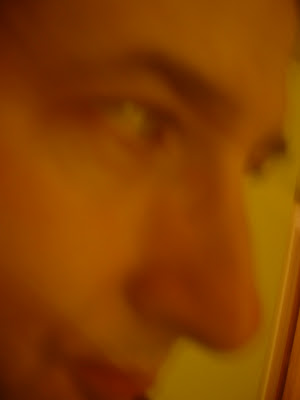Digital Real Estate
I do like to read about man-made disasters and anticipated collapses. Every now and then, when my mind's fresh eager, I try to follow the thread of a trend through to real world consequences. If I were any good at this, I'd be Warren Buffett. Who in their right mind would prepare for our Star Trek future by becoming a railroad baron to haul coal, our nation's energy future? Which century did our time's odometer just flip to?
Collapse is a better word to describe what intrigues me. For instance, my latest interest is about how we're going to reclaim the gazillions of square feet of retail space now obsolete because of zeros and ones. Both because of products that are turning digital and shopping on the interweb.
Electronic readers like the Kindle and the Nook have fired my latest round of wondering. Without considering changing reading habits which is a whole nother topic, where is the tipping point for big box bookselling?
How much retail space is devoted to selling new books? It's simple math if you know how many Waldens, Barnes and Nobles and Borders there are out there. Oh, and book sections in Target, Walmart, Costco and Sam's Club. Just a matter of total square footage. The retailers threatened here are the books-only stores, others can repurpose those sections. Even with the plunge in real estate value, it's hard imagining the all of the above booksellers hanging on and remaining the same.
But it's not just books, videos are screaming toward a flaming death as well. Ironically, the film industry should like that idea. So the Blockbusters and Hollywood Videos are walking corpses, right? How much more square footage is that? Factor in the Mall real estate market which has been staggered by the downturn and we're talking about many millions of square feet.
(Note that I'm not thinking about crushing impact on jobs here. It might sound a bit cold, but that's not as interesting to me to think about. We're all caught in this vice so don't think me too heartless.)
It's not just traditional media (newspapers eek!) of course. Best Buy isn't far behind Circuit City (crappy retailers). Think calculators here. Every electronic device produced is affected by ever cheaper manufacture. Ever deepening pricing pressure. It is stunning to me that many devices that I might buy have so little profit for the sellers.
But really, my interest here is all of the real estate that can be affected by retailers drying up. Will there be a slow transition or a big bang like when Circuit City went belly up? That was the largest single abandonment of real estate in our history. Will there be an advantage to being a tenant for the first time in a long time? I doubt it. Other than food and trinkets, what is there that we will sell and buy at prices that rival internet prices? There are only so many high-end, frou-frou shops that can thrive.
Craig's List has moved the yard sale mess online. I doubt that there's much incentive in turning these spaces into giant barns of second-hand crap. I'd like to see a mandate that turns ghost property into something good for a community: gardens, play grounds, some other predictable lefty option. Pay the landlord some dollars for providing the space.If we can subsidize some questionable agricultural practices, we could subsidize this.
Note that I don't have a solution yet. Maybe there's not going to be a problem. Yeah, all economic indicators are a go! My favorite solution is to shutter any business that's gone belly up. Or at least a few stores if it's a large chain. Don't sell any inventory, just wall up the place and turn it into a time capsule.
My other favorite idea. In one hard hit area, take all the ghost stores, all the suburbs, all the city and infrastructure (poor Detroit is dealing with this kind of city death right now) and turn the lot into a national park. People can live out their lives there if they wish but no new citizens. (Prevent vandalism by some magical means. Hey, this is why I'm writing here rather than writing policy.) Tourism will take a few generations to kick in, but at some point, our kids will marvel at how we lived. Either it will be an awe-inspiring visit into a past where hearty ancestors got by without teleportation and other basics or an awe-inspiring look at a time when an entire people lived like Gods. Right now, I'm hoping that the future will lean more toward the first option but am uneasy that we're sliding toward the second.


